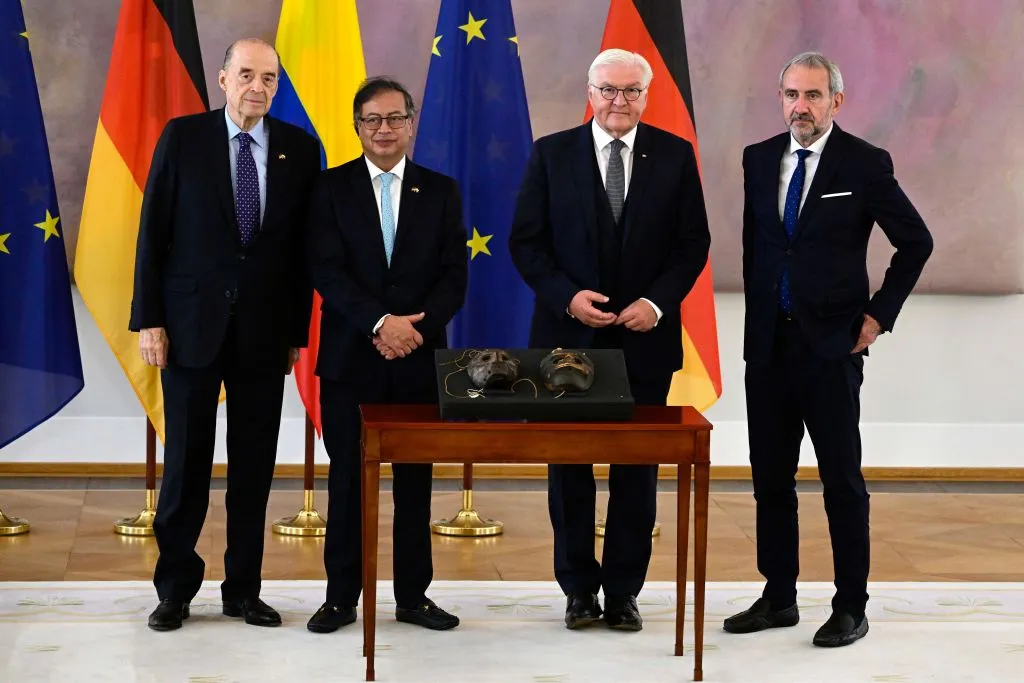
Photo JOHN MACDOUGALL/AFP via Getty Images
Two sacred indigenous masks were returned to Colombia by Germany following years of discussions in a ceremony attended by Colombian president Gustavo Petro and German president Frank-Walter Steinmeier in Berlin on June 16.
The Kogi masks, which date to the 15th century, came from an indigenous group that lives in the Sierra Nevada de Santa Marta mountains in northern Colombia. They were legally purchased by German ethnologist Konrad Theodor Preuss from the son of a late Kogi priest in 1915 and have since been held in the collection of the Ethnological Museum of Berlin.
According to the Prussian Cultural Heritage Foundation, however, the masks should have never been for sale because they are considered sacred.
“They are not a historical artefact, they are alive,” Kogi representative Arregocés Conchacala Zalabata told The Guardian. “With the masks we perform ceremonies to connect and work with the spirit of the sun, the waters, the mountains and the world’s many species,” said Zalabata.
The Kogi community planned to continue using the masks, but some experts have advised against this. In the 1940s and ’50s, a disinfectant that has since been banned in the European Union was used to treat the masks. The disinfectant has been linked to breathing problems and could potentially cause cancer.
Though the two masks were reportedly cleaned and “detoxified” earlier this year, according to Rudolf Parzinger, the president of the Prussian Cultural Heritage Foundation, it is still unclear whether they can be safely worn over the face.


